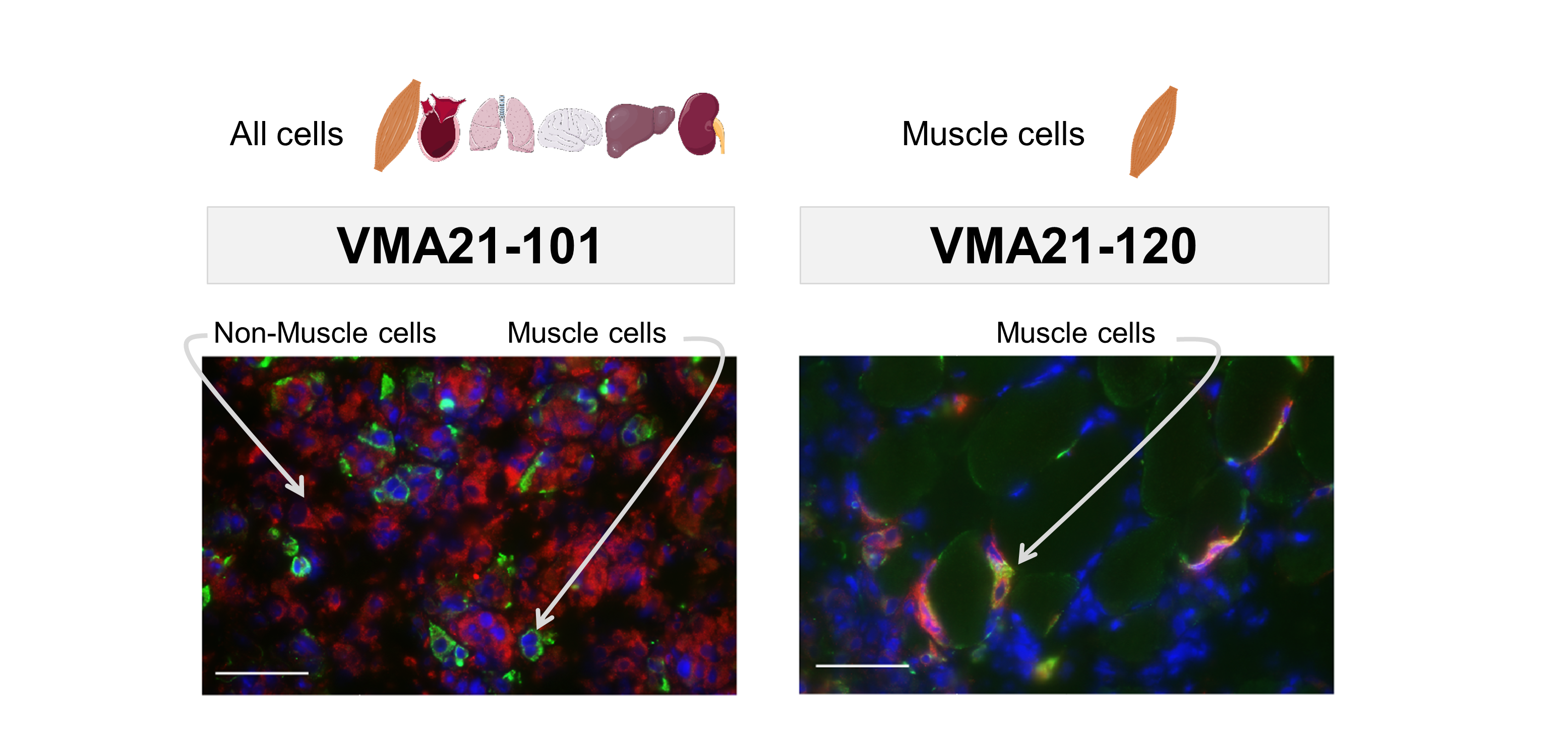A special clean-up system in muscles?
Autophagy is an essential cellular process, which allows cells to clean up and recycle their waste products and damaged parts. In the rare genetic muscle disease XMEA, for X-linked myopathy with excessive autophagy, this natural process is disrupted. XMEA is caused by mutations in the VMA21 gene, which lead to deficiency in the VMA21 protein, a protein involved in assembling the cellular machinery necessary for autophagy. Intriguingly, even though autophagy is essential for the survival and functioning of all cells in the body, the XMEA disease only affects a specific category of muscles, the skeletal muscles. Despite years of research, the reason only skeletal muscles are altered in the absence of VMA21 has remained a mystery.
The discovery of a new form of VMA21…
Prof. Perrine Castets and her research team from the Faculty of Medicine have shed light on this puzzling situation, by using mouse tissues and muscle cell lines, as well as human cells obtained from XMEA patients. As part of Ilaria Cocchiararo’s PhD thesis, they discovered that the VMA21 gene encodes not only the well-described form of VMA21 expressed in all cell types, VMA21-101, but also a long, previously unidentified form of the protein, called VMA21-120, that is present exclusively in skeletal muscle cells. The research team showed that VMA21-120 is lost in muscle cells from patients suffering from XMEA, which may explain why XMEA affects only muscle cells and not other organs. Ilaria Cocchiararo was awarded a poster prize for this important discovery at 9th Rare Disease Summer School in July 2023, in Warth.

Both muscle (in green) and non-muscle cells express the well-known, short VMA21 form, VMA21-101 (in red, left picture), while the newly discovered form of VMA21, VMA21-120 (in red, right picture) is only present in skeletal muscle cells (in green). © Laboratory of Prof. Perrine Castets, UNIGE
…opens up new therapeutic avenues
These findings provide new insights into understanding and treating not only XMEA but also a wide range of genetic diseases characterized by impaired autophagy. They also highlight the need for researchers to thoroughly investigate all protein variants to ensure that they do not miss important molecular mechanisms.
